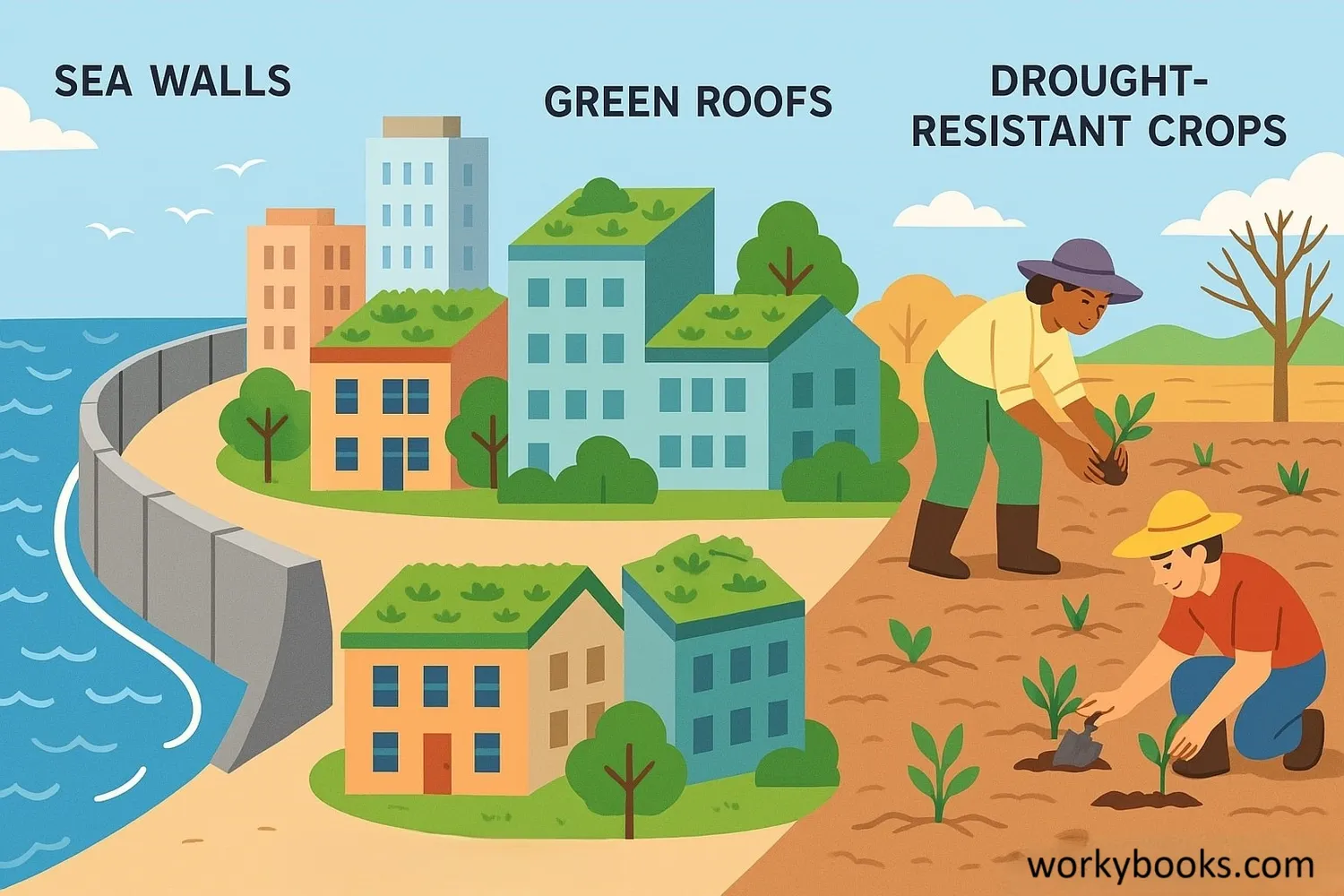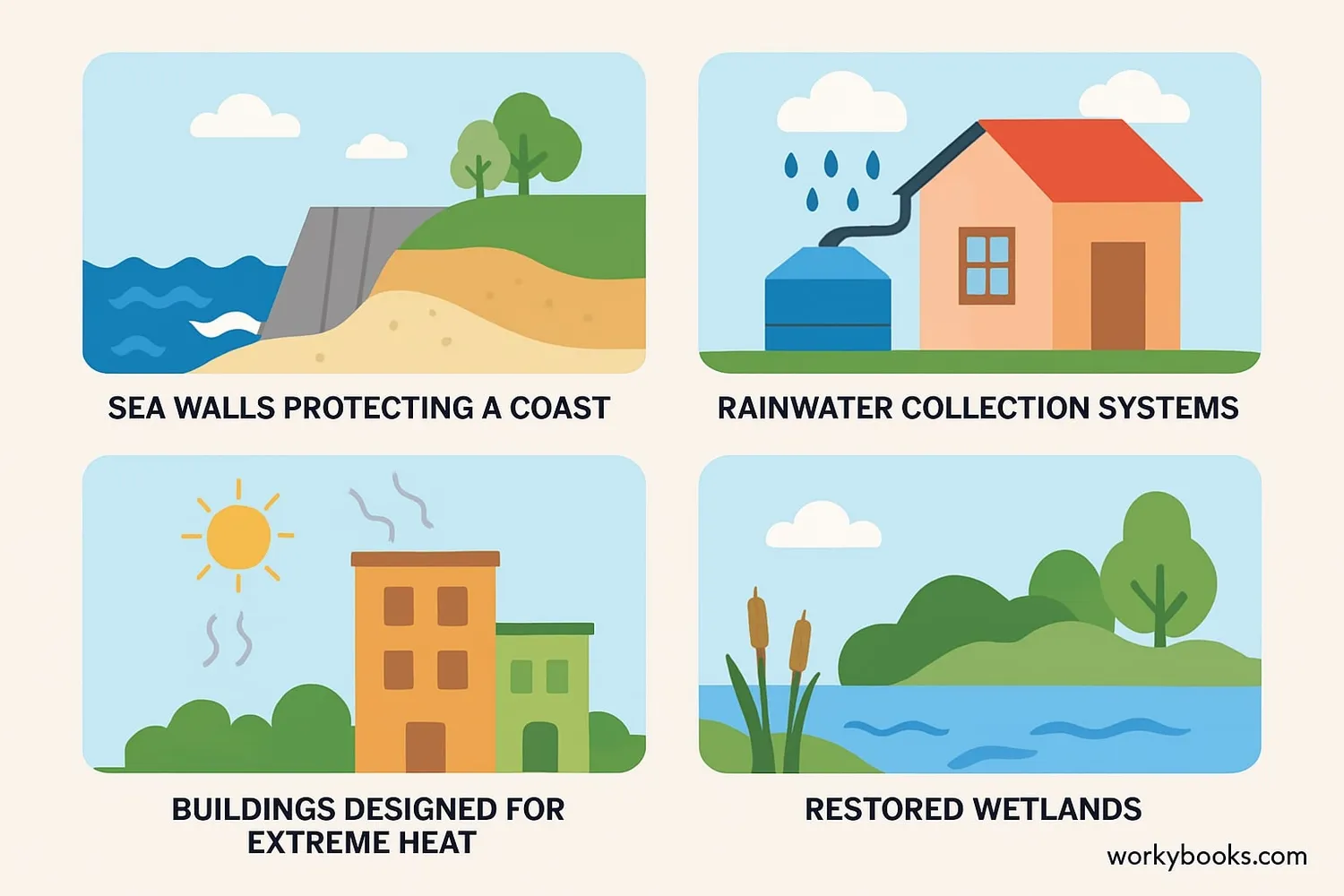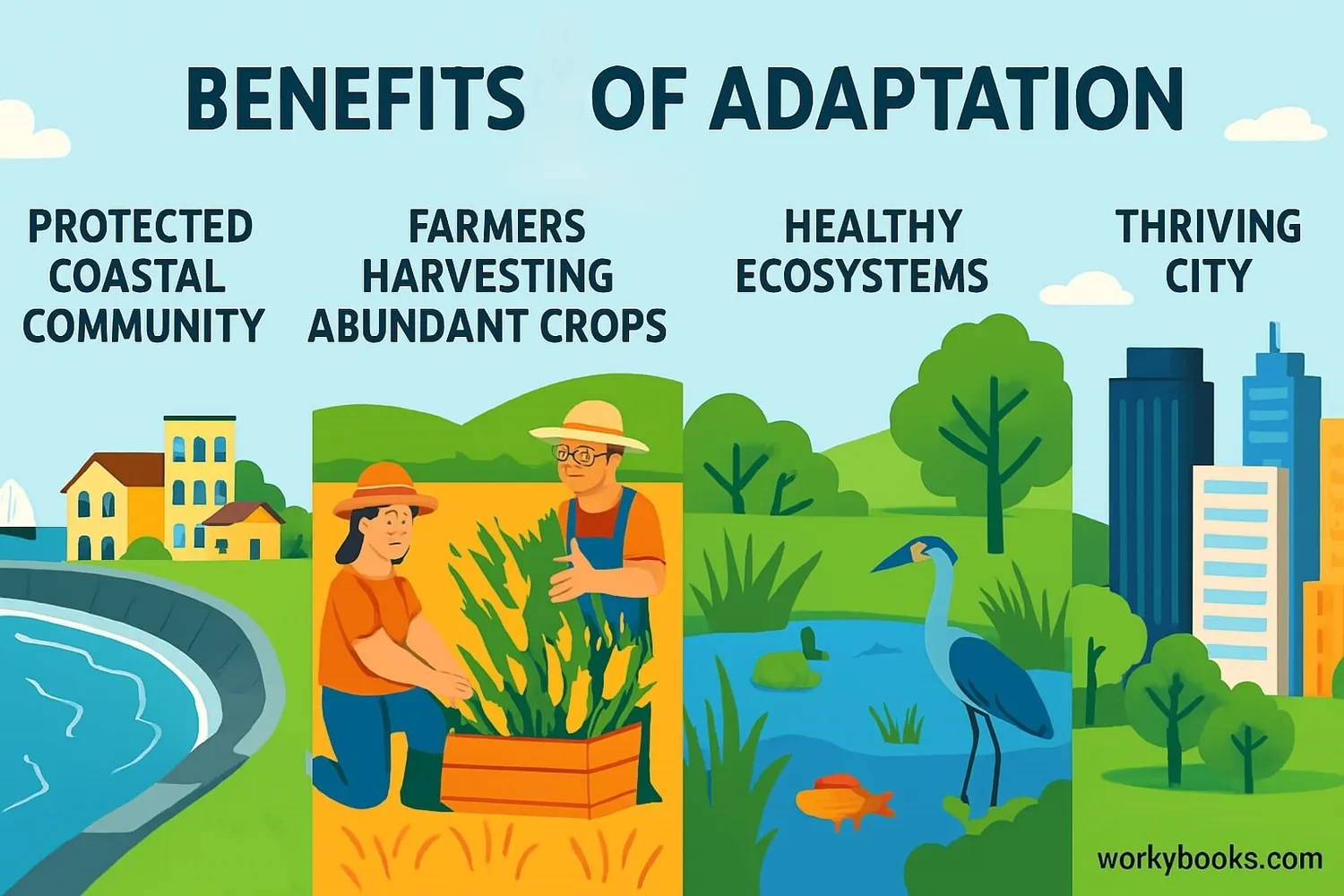Climate Change Adaptation - Definition, Examples, Quiz, FAQ, Trivia
Discover how we can prepare for a changing climate and build resilient communities
What is Climate Change Adaptation?

Climate change adaptation means adjusting to actual or expected climate changes and their effects. It's about learning to live with the changes that are happening to our planet's climate and preparing for future changes.
Think of it like this: If it starts raining, you put on a raincoat - that's adaptation! Similarly, as our climate changes, we need to find ways to protect ourselves, our communities, and our environment.
Adaptation is different from mitigation (which is about reducing greenhouse gases). While mitigation tries to stop climate change from getting worse, adaptation helps us deal with changes that are already happening.
Adaptation Fact!
Adaptation isn't just about big projects - it includes everyday actions like planting trees for shade or choosing crops that need less water.
Adaptation Strategies

Communities around the world are using creative strategies to adapt to climate change. Here are some important approaches:
Infrastructure
Building sea walls, improving drainage, and designing heat-resistant buildings
Water Management
Creating water storage, improving irrigation, and protecting watersheds
Agriculture
Developing drought-resistant crops and changing planting seasons
Ecosystem Protection
Restoring wetlands, mangroves, and forests that provide natural protection
Community Planning
Creating emergency plans and cooling centers for extreme weather
Real World Example
In the Netherlands, people have lived below sea level for centuries. They've adapted by building advanced flood control systems, showing how adaptation can be successful!
Why Adaptation Matters

Adaptation is crucial for everyone on our planet. Here's why it matters:
Safety
Protects people from climate impacts like floods, heatwaves, and storms
Food Security
Helps farmers grow food even as weather patterns change
Community Resilience
Helps towns and cities withstand climate challenges
Without adaptation, we would face:
• More damage from extreme weather
• Greater difficulties growing enough food
• Loss of homes and communities
• Harm to plants and animals
Adaptation works best when we combine it with efforts to reduce greenhouse gases. Together, they help create a sustainable future for everyone!
Climate Adaptation Quiz
Test your knowledge about climate change adaptation with this quiz! Answer all 5 questions to see how much you've learned.
Frequently Asked Questions
Here are answers to common questions about climate change adaptation:
Climate Adaptation Trivia
Discover fascinating facts about climate adaptation:
Ancient Adaptation
Indigenous communities have practiced adaptation for thousands of years, using traditional knowledge to live in challenging environments - knowledge that's valuable today!
Cool Cities
Medellín, Colombia planted 30 "green corridors" with thousands of trees that have reduced temperatures by more than 3°C in some areas!
Floating Solutions
In the Netherlands, architects are building floating neighborhoods that rise with sea levels - an innovative adaptation to increased flooding.
Super Crops
Scientists are developing "climate-smart" crops like flood-resistant rice and drought-tolerant maize to help farmers adapt to changing conditions.





